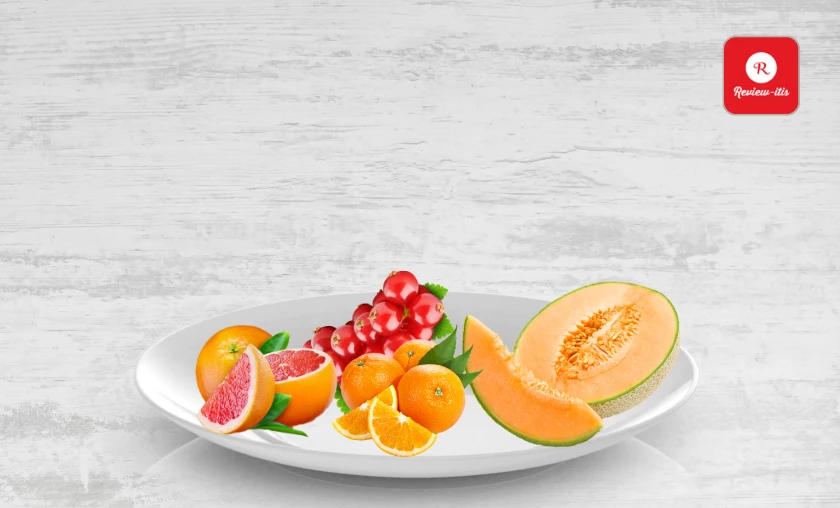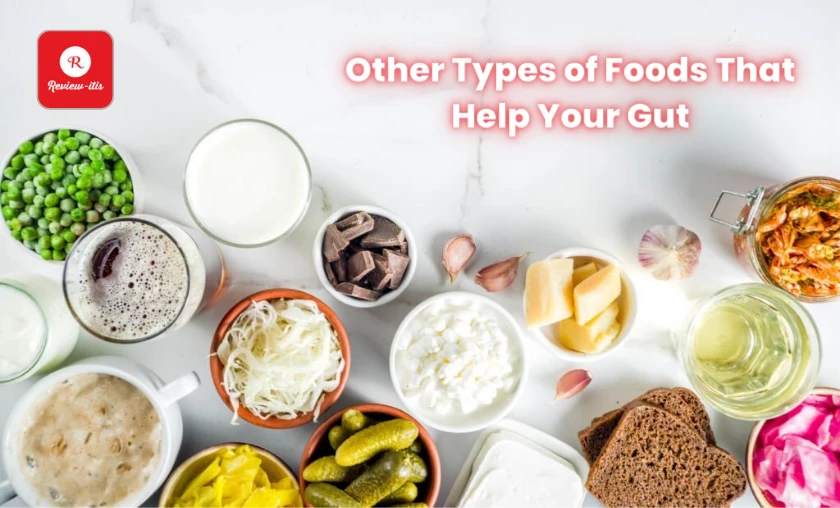Grains and Your Digestive Health! A Great Guide: Maintaining a robust digestive system is crucial for your overall well-being. When it comes to health, the consensus among experts is clear: a well-functioning digestive tract plays a pivotal role in preventing a range of ailments, including arthritis, depression, fatigue, skin problems, and mood swings.
This article delves into the finest grains, fruits, and vegetables that support digestion. Additionally, we’ll explore foods that pose challenges to the digestive process and provide other valuable tips to nurture a healthy digestive tract. To offer you comprehensive insights, we’ve gathered input from two esteemed authorities on this subject: a Medical Doctor and a certified nutrition and wellness consultant.
Table of Contents
Benefits of Eating Foods That Improve Digestion Health

As emphasized by Allison Wells, a health coach, certified personal trainer, & certified nutrition & wellness consultant based in Southern California, food serves as the primary source of nutrients that fuel the body’s proper functioning.
The healthy digestive system plays a vital role in breaking down nutrients into smaller components that the body can absorb and utilize for growth, cellular repair, and energy.
Wells emphasizes that the gut is the core of numerous health concerns, highlighting the significance of maintaining a well-balanced microbiome and a healthy digestive system to help prevent the following ailments:
- Autoimmune disease
- Arthritis
- Depression
- Depression
- Low energy
- Psoriasis
- Acne
Wells asserts that incorporating foods that support digestion into your diet ensures that the body optimally absorbs and utilizes its nutrients, resulting in a harmonious and robust system.
Signs of Poor Gut Health

According to Wells, the accumulation of substances in our gastrointestinal tract directly affects the body’s immune system and metabolic functions.
Poor digestive health can manifest in various outcomes, including:
- Constipation
- Allergies
- Fatigue
- Skin problems
- Mood swings
- Bad breath
- Food intolerances
Dr. Martha E. Rivera, a distinguished Fellow of the American Academy of Pediatrics & the Academy of Integrative Health & Medicine, emphasizes the paramount importance of the digestive tract in overall health.
Dr. Rivera highlights that the digestive tract, which is the second-largest organ after the skin, is known as the Gut Associated Lymphoid tissue and significantly influences a person’s immunity and overall well-being.
Dr. Rivera notes the profound impact of food on our health, stating that it can either serve as medicine or be toxic to our bodies.
By adopting a diet that prioritizes clean, minimally processed foods and incorporates more natural and plant-based options, we enhance our ability to digest food effectively and reduce inflammation, which serves as the primary driver of various diseases such as diabetes, cancer, arthritis, autoimmune disease, cardiovascular disease, depression, obesity, and Alzheimer’s.
Best Grains That Help Digestion

According to Wells, whole grains are highly beneficial for the digestive system due to their abundance of fiber and nutrients like Omega-3 fatty acids.
Omega-3 fatty acids aid in maintaining the proper function of the colon lining, which houses 70% of our immune cells.
The fiber found in whole grains contributes to stool bulk, effectively reducing constipation. Moreover, certain grain fibers serve as nourishment for beneficial gut bacteria.
The following whole grains are particularly advantageous for digestion:
- Oats
- Quinoa
- Farro (a type of hulled wheat)
- Products made from whole wheat
Dr. Rivera recommends the following grains as healthy choices due to their slower impact on blood sugar levels and ability to provide a feeling of fullness:
- Brown rice
- Barley
- Buckwheat
- Wild rice or basmati rice
- Steel-cut oats
Dr. Rivera highlights that these grains promote better digestion as they are metabolized more gradually compared to their refined counterparts, which causes sugar spikes. Refined grains can lead to sugar cravings and contribute to constipation, whereas the recommended whole grains offer a more balanced digestion process.
Best Fruits That Help Digestion

According to Wells, fruits with high fructose content, also known as fruit sugar, can be challenging for certain individuals to digest, leading to gas and bloating. Examples of such fruits include grapes, mangoes, and pears.
On the other hand, there are fruits with lower fructose content that are generally easier to digest, including:
- Berries
- Melon
- Oranges
- Grapefruit
Wells highlights that papaya contains an enzyme called papain, which aids in the digestion of proteins. This digestive enzyme can help reduce bloating & alleviate symptoms associated with irritable bowel syndrome (IBS), such as cramping, abdominal pain, bloating, gas, diarrhea, or constipation.
Wells also recommends bananas for digestion, as they can help alleviate diarrhea. Bananas are rich in inulin, a fiber that stimulates the growth of beneficial gut bacteria. Additionally, avocados are considered an excellent option due to their high fiber and potassium content, promoting healthy digestive function.
Dr. Rivera emphasizes that fruits aid digestion and provide essential antioxidants, flavonoids, and carotenoids. She suggests consuming 3 to 4 servings of fruits per day.
Dr. Rivera specifically recommends the following fruits for their beneficial properties:
- Berries, which are high in fiber
- Blueberries, strawberries, raspberries, and blackberries, which have a low glycemic index and are favorable choices
- Cherries, known for their anti-inflammatory properties
- Watermelon, which is a good source of potassium and fiber and aids in digestion.
Best Vegetables That Help Digestion

Leafy greens and certain cruciferous vegetables are highly beneficial for digestive health, as stated by Wells. These vegetables are rich in insoluble fiber, which adds bulk to stools and speeds up elimination from the digestive tract.
Additionally, leafy greens and cruciferous vegetables provide magnesium, which aids in relieving constipation and nourishing beneficial gut bacteria.
The following vegetables are particularly good for digestion:
- Spinach
- Kale
- Broccoli
- Brussels sprouts
- Beets
Dr. Rivera highlights that cruciferous vegetables, such as broccoli, cabbage, Brussels sprouts, and cauliflower, belong to the Brassicaceae family. They contain sulforaphane, the compound known for its anti-cancer and anti-inflammatory properties and its digestive benefits.
Carrots are another vegetable that aids in digestion. They are beneficial due to their carotenoid content, which is believed to reduce the risk of certain diseases, including certain cancers and eye diseases.
Tomatoes are also beneficial for digestion. They contain beta-carotene, an antioxidant that converts to Vitamin A in the body and has demonstrated anti-inflammatory properties.
Dr. Rivera recommends consuming 4 to 5 servings of vegetables per day. These vegetables can be incorporated into every meal to support digestion and provide anti-inflammatory benefits.
Other Types of Foods That Help Your Gut

According to Wells, numerous other foods are beneficial for digestion, with some of the top choices including fermented foods, lean proteins, and certain roots and herbs.
Fermented foods are particularly valuable due to their probiotic content, which enhances digestion and supports bowel health. Examples of fermented foods include:
- Kimchi
- Tempeh
- Miso
- Yogurt
Wells emphasizes that lean proteins are easier for the body to digest compared to heavier meat options. Opting for chicken and fish, especially salmon, with its Omega-3 fatty acids that reduce gut inflammation, contributes to maintaining a healthy digestive system.
Ginger is an additional food that aids digestion by facilitating the swift passage of food through the stomach. It is also used to alleviate nausea. Peppermint oil, derived from the peppermint leaf, contains menthol, which can help alleviate bloating and stomach discomfort associated with irritable bowel syndrome (IBS).
Dr. Rivera recommends increasing water intake for improved digestion, highlighting that the body is composed of at least 66% water. Consuming an adequate amount of water supports healthy digestion.
To make it easier to consume more water, Dr. Rivera suggests adding lemon, cucumber, or mint (especially during hot summer days) for a refreshing twist. Insufficient water intake can lead to sluggish bowels and constipation.
The Science Behind Improving Your Digestions

While some may dismiss it as home remedies and medicine, the digestive function has been extensively studied. Researchers discovered that consuming 14g of whole-grain fiber daily for six weeks led to lower cholesterol and more regular bowel movements.
Multiple studies have shown the inverse relationship between whole grain consumption and body weight, suggesting that higher consumption is associated with lower body weight. Whole grain intake may also lower the risk of heart disease, diabetes, & certain cancers while improving digestive health and reducing BMIs.
Fruits support digestive function, lower the risk of heart disease and obesity, and provide essential vitamins, minerals, and antioxidants. Prunes and kiwis effectively alleviate constipation, and various fruits hold promise as potential treatments for irritable bowel syndrome (IBS).
Vegetables, especially those high in inulin, like artichokes and onions, positively impact gut bacteria. Fermented foods like kimchi and yogurt offer health benefits such as reducing cholesterol and preventing diarrhea.
Remember, these benefits can be achieved gradually by incorporating a single serving of whole grains, fruit, or vegetables or aiming for one plant-based meal per day or every other day.
Conclusion
It’s important to recognize that while many foods may taste delicious, they can have detrimental effects on our digestive system, potentially leading to serious health issues in the future.
As Wells cautioned, everyone responds differently to various foods, so paying attention to how our bodies feel after consuming them is crucial. Feeling clean, energized, and healthy is a positive sign, whereas experiencing bloating, gas, and pain should guide us toward appropriate food choices.
Regularly incorporating foods that support healthy digestion into our meals can prevent diseases and promote improved gut health. Furthermore, Dr. Rivera emphasizes the role of exercise in aiding digestion.
Our digestion suffers in today’s world of convenience meals, increased screen time, and sedentary lifestyles. Movement is key, as our bowels won’t move if we don’t move.
FAQs
Are all grains equally beneficial for digestive health?
When it comes to grains and digestive health, not all grains are created equal. Whole grains, such as brown rice, quinoa, & oats, are rich in fiber and nutrients that support a healthy digestive system.
Refined grains, on the other hand, like white bread & white rice, have been stripped of their fiber & may not offer the same benefits. Opting for whole grains is a wise choice for promoting digestive well-being.
Can grains cause digestive issues or discomfort?
While grains are generally considered a healthy part of a balanced diet, some individuals may experience digestive issues or discomfort after consuming certain types of grains.
This can be due to factors such as gluten intolerance or sensitivity. Suppose you suspect grains are causing digestive problems. In that case, consulting with a healthcare professional or trying alternative grain options like gluten-free grains (e.g., quinoa, millet, or rice) may be helpful to see if symptoms improve.
How much fiber do grains provide, and why is it important for digestion?
Grains, especially whole grains, are an excellent source of dietary fiber, which plays a great role in digestive health.
Fiber adds bulk to stool, promoting regular bowel movements and preventing constipation. It also acts as a prebiotic, nourishing the beneficial bacteria in our gut. Aim to include the variety of whole grains in your diet to ensure an adequate intake of fiber and support optimal digestive function.
Can grains help with conditions like irritable bowel syndrome (IBS)?
Grains can be part of a comprehensive approach to managing irritable bowel syndrome (IBS).
However, it’s important to note that certain individuals with IBS may have specific grain sensitivities, such as gluten intolerance.
In such cases, gluten-free grains like quinoa or rice may be better tolerated. Working with the healthcare provider or registered dietitian can help determine the best approach to including grains in an IBS-friendly diet.
Are there any tips for incorporating more grains into my diet for better digestive health?
Absolutely! Here’re a few tips to increase your grain consumption and promote better digestive health:
• Choose the whole grain options like whole wheat bread, brown rice, and whole grain cereals.
• For variety, experiment with different grains such as quinoa, amaranth, or barley.
• Add grains into meals, to salads, soups, or stir-fries.
• Start your day with a fiber-rich breakfast cereal or oatmeal.
• When baking, substitute refined flour with whole-grain alternatives.
Remember, gradual changes to your diet are often more sustainable. Aim for a balanced approach that includes a variety of whole grains along with other nutrient-dense foods for optimal digestive health.
For more amazing articles related to Health, Checkout Now with a click
To read more similar articles, click here.
Thanks for visiting our Website. If you appreciate our work, kindly show us some support in our comments section. 🙂